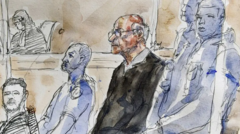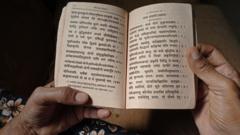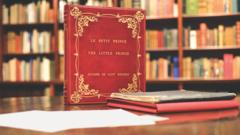A collection of diaries has won the prestigious Baillie Gifford Prize for Non-Fiction for the first time.
How to End a Story: Collected Diaries by Helen Garner charts the Australian writer's life from the early stages of her career in bohemian Melbourne, to raising her daughter in the 1970s, and her experience of a disintegrating marriage in the 1990s.
Garner's previous work includes 2014's The House of Grief, which told the story of Robert Farquharson on trial for the murder of his three sons.
Famous fans include fellow writer David Nicholls, and singer Dua Lipa, who said: Helen Garner's work is a thrilling discovery. She's one of the most fascinating writers I have come across.\
Chair of judges, Robbie Millen, said How to End a Story was the judges' unanimous winner, praising it as a remarkable, addictive book.
Garner takes the diary form, mixing the intimate, the intellectual, and the everyday, to new heights. She is a brilliant observer and listener - every page has a surprising, sharp or amusing thought. Her collected diaries will surely be mentioned alongside The Diary of Virginia Woolf.
This marks the first major UK-based prize win for the Australian, who has been belatedly receiving attention in the UK following the British publication of three of her books for the first time last year.
The Baillie Gifford Prize rewards the best of non-fiction and is open to authors of any nationality. As the winner, Garner will receive £50,000, with the other shortlisted authors each receiving £5,000, bringing the total prize value to £75,000.
The selection was made from over 350 books published between 1 November 2024 and 31 October 2025.
The others who made the shortlist were:
- The Revolutionists: The Story of the Extremists Who Hijacked the 1970s by Jason Burke.
- The Boundless Deep: Young Tennyson, Science and the Crisis of Belief by Richard Holmes.
- Captives and Companions: A History of Slavery and the Slave Trade in the Islamic World by Justin Marozzi.
- Lone Wolf: Walking the Faultlines of Europe by Adam Weymouth.
- Electric Spark by Frances Wilson.















